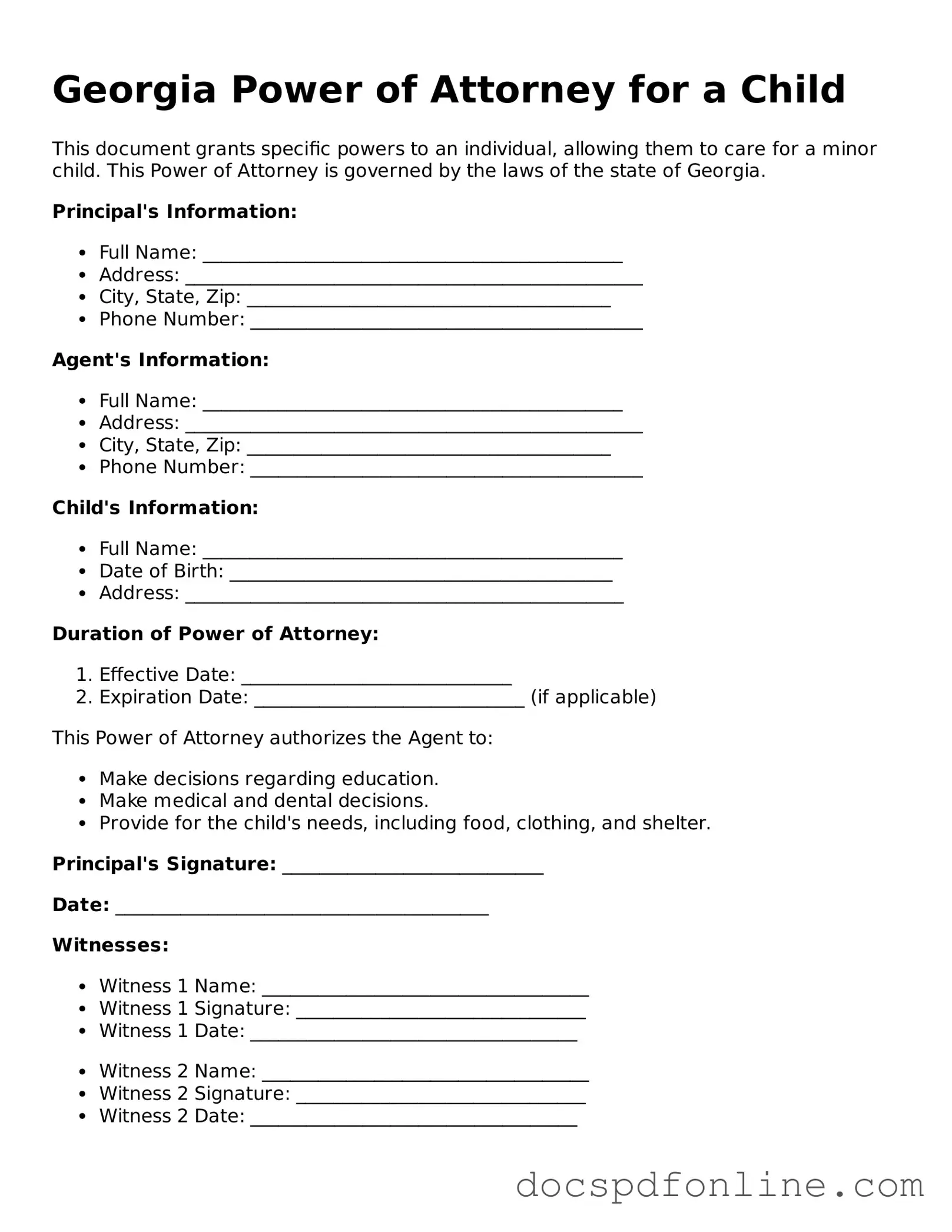Legal Power of Attorney for a Child Template for Georgia
The Georgia Power of Attorney for a Child form allows a parent or legal guardian to appoint someone else to make decisions on behalf of their child. This legal document can be crucial in situations where the parent is unavailable, ensuring that the child's needs are met promptly. Understanding how to use this form effectively can provide peace of mind for parents and caregivers alike.
Launch Editor Now

Legal Power of Attorney for a Child Template for Georgia
Launch Editor Now
Save time — finish this form fast
Finish Power of Attorney for a Child online — edit, save, download made easy.
Launch Editor Now
or
↓ PDF File
